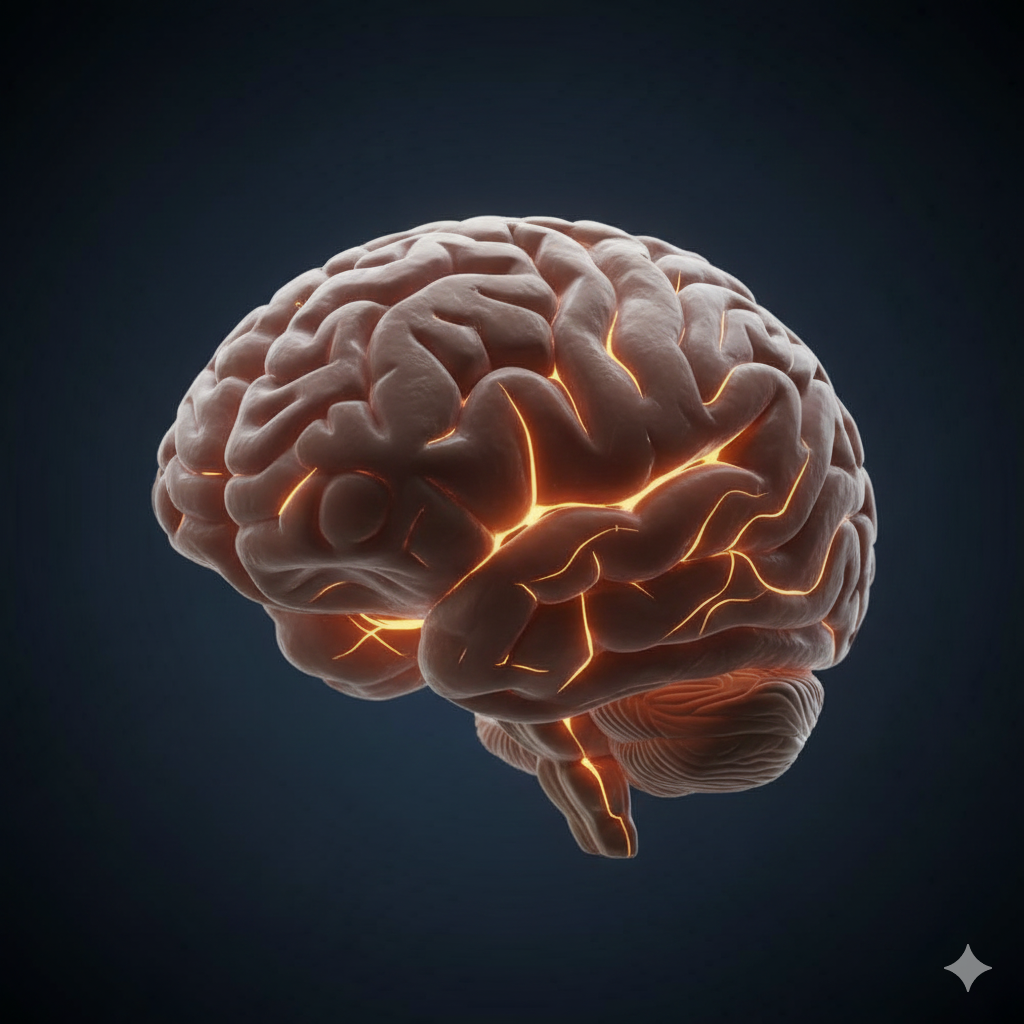Can Hypnosis Really Help You Lose Weight?
You've tried every diet, counted every calorie, and sweated through countless workouts, yet the scale refuses to budge. If this sounds familiar, you're not alone. Millions of Australians are frustrated with their weight loss journeys, and many are turning to an unexpected solution: Hypnosis for weight loss.
But here's the real question – does weight loss hypnosis work, or is it just another weight loss gimmick?
Clinical evidence suggests hypnotherapy could be your missing puzzle piece. While it's not the miracle solution many claim, research from the International Journal of Clinical and Experimental Hypnosis shows participants using hypnotherapy lost twice the weight compared to those using diet alone.
Let's cut through the hype and examine what Hypnosis can – and can't – do for your weight loss journey.
The Science Behind Hypnosis and Weight Loss
How Hypnosis Affects the Brain
Weight loss is more than calories in versus calories out—it is deeply intertwined with psychology. Many struggle with overeating, emotional eating, and powerful cravings. Hypnosis offers a way to address these underlying issues at the subconscious level, potentially rewiring our relationship with food.
Hypnosis induces focused relaxation, and the brain becomes more receptive to suggestion. Neuroscientific studies, including fMRI scans, have shown that Hypnosis alters activity in brain regions associated with attention, habit formation (anterior cingulate cortex), decision-making, and impulse control (prefrontal cortex). This can help individuals override automatic, unhealthy eating behaviours and make more mindful choices.
The Connection Between Hypnosis and Eating Behaviours
Many eating habits are driven by unconscious patterns – stress eating, late-night snacking, or using food as a reward. Hypnosis can help reprogram these automatic responses by:
- Reducing Emotional Eating: Hypnosis can lower stress and anxiety, decreasing the likelihood of turning to food for comfort.
- Curbing Cravings: By reinforcing suggestions that certain foods are unappealing, Hypnosis can reduce cravings for unhealthy options.
- Boosting Self-Control: Hypnosis can strengthen the ability to pause and make conscious food choices rather than act impulsively.
Research-Backed Results and Statistics
Key Research Findings and Statistics
Several studies support the effectiveness of Hypnosis for weight loss:
- Meta-Analysis (Journal of Consulting and Clinical Psychology) – Hypnosis participants lost more than twice as much weight as those using diet and exercise alone.
- University of Connecticut Study – Hypnosis not only led to more significant weight loss but also helped participants maintain their results over time.
- Harvard Medical School Research – Hypnosis has been found to reduce stress and improve mindful eating, key factors in long-term weight management.
Expert Opinions
Dr. David Spiegel (Stanford University): "Hypnosis isn't about losing control—it's about regaining it. By changing subconscious thought patterns, people can improve their eating habits naturally."
Dr. Jean Fain (Harvard Medical School): "Hypnosis helps individuals break the cycle of emotional eating by fostering self-compassion and mindfulness."
Important Considerations
While Hypnosis can be a powerful tool, it's most effective with a comprehensive weight management approach that includes healthy eating, regular exercise, and potentially other therapies like CBT. Success rates vary, and Hypnosis is generally more effective for individuals who are receptive to suggestions.
How Hypnosis Helps with Weight Loss
1. Rewiring Behavioural Patterns
Many eating habits are automatic—snacking while watching TV, reaching for sweets when stressed, or overeating at social gatherings. Hypnosis can interrupt these unconscious behaviours and replace them with healthier choices.
Breaking the Cycle of Emotional Eating
Food often becomes a coping mechanism for stress, anxiety, boredom, or sadness. Hypnosis helps by:
- Teaching new, healthier coping mechanisms for stress without turning to food.
- Reducing anxiety levels that trigger overeating.
- Creating alternative responses to emotional triggers.
Managing Cravings
Hypnosis can modify emotional responses that contribute to food cravings. Clients learn to distinguish between physical and emotional hunger, reducing stress-induced eating patterns. It can also help associate unhealthy foods with less desire or reduced pleasure, making cravings easier to manage.
Reinforcing Positive Habits
Hypnosis can strengthen positive habits, such as eating slowly, drinking more water, and recognising true hunger versus emotional hunger.
2. Shifting Mindset and Motivation
Many people approach weight loss with an all-or-nothing mentality, leading to guilt and frustration when they slip up. Hypnosis fosters a more sustainable and positive mindset.
- Enhanced Self-Regulation: Hypnosis can modify brain activity in regions controlling reward processing and impulse control, leading to improved self-control over eating habits and enhanced motivation for maintaining healthy choices.
- Building Self-Compassion: Hypnosis encourages self-compassion instead of self-criticism, creating a more supportive inner dialogue.
- Visualising Success: Hypnosis can help individuals visualise their ideal self and future health, making goals more achievable.
- Maintaining Motivation: Hypnosis reinforces motivation and consistency, making it easier to stick to a healthy lifestyle long-term.
3. Long-Term Success
Studies demonstrate that Hypnosis is most effective when:
- Combined with cognitive behavioural therapy (CBT).
- Delivered through multiple sessions rather than single treatments.
- Integrated into a comprehensive weight management program.
Success Stories & Case Studies: Real-Life Examples of Hypnosis for Weight Loss
Sarah's Success Story
Sarah had battled obesity for much of her life, facing health challenges like high blood pressure and asthma. After completing hypnotherapy sessions, she achieved a significant transformation, losing half of her body weight. Her Body Mass Index (BMI) reached a healthy range, her blood pressure normalised, and her asthma symptoms improved.
Rebecca's Weight Loss Journey
Rebecca had been battling weight issues since she was 15 years old, trying various diet plans without long-term success. At 34, weighing over 14 stone (approximately 196 pounds), she turned to hypnotherapy as a last resort. Through hypnotherapy sessions, Rebecca changed her behaviours around food, leading to a weight loss of over five stone (approximately 70 pounds) and dropping three dress sizes.
Tziporah Malkah: A Public Figure's Transformation
Former model Tziporah Malkah turned to Hypnosis to address her weight concerns. She lost an impressive 50 kilograms through consistent hypnotherapy sessions, nearly half her body weight.
Claire Sweeney: Embracing Hypnosis for Health
Actress Claire Sweeney utilised Hypnosis to manage her weight effectively. She achieved significant weight loss by addressing the psychological aspects of her eating habits.
Final Thoughts: Can Hypnosis Help You Lose Weight?
Hypnosis offers a scientifically-supported approach to weight loss when combined with traditional weight management strategies. Research shows participants using hypnosis lost more than twice the weight compared to those using diet alone, with benefits increasing over time.
For those ready to transform their weight loss journey, Craig at Inspired Mindset in Canberra offers personalised weight loss hypnotherapy programs that address both physical and psychological aspects of weight management.
Book Your Free Consultation
Take the first step toward sustainable weight loss by booking a complimentary consultation with Craig to discuss how hypnotherapy can support your weight loss goals.


















